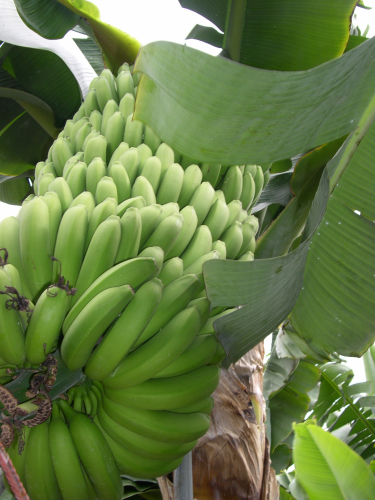
The Badana project, led by consultancy Smithers Rapra, is half way through its two-year funding period and the first prototype of the multi-phase decorticating machine (MPDM) which automates the process of extracting fibre from the leaves of the banana plant has been developed.
Work has also been undertaken to analyse the fibres of a variety of banana species grown in the Canary Islands. This has helped in the development of formulations for modifying the fibre surface in order to ensure good adhesion between the fibres and the polymer with which they are compounded.
Successful candidate formulations have been selected and lab scale trials, involving injection moulding and rotational moulding of the developed plastic composites, have been carried out. The results have shown good behaviour of the fibre compared to other natural fibres in terms of mechanical properties and coupling to the plastic matrix, as well as resistance to degradation under processing conditions.
In the next few months the BADANA project will focus on completing the lab scale trials of the MPDM and optimising the machine design. Work will be undertaken to manufacture the composites on an industrial scale to enable industrial trials to take place. Parts such as components for car doors, washing machines and kayaks are expected to be tested at this stage of the project.
The Badana project will run until June 2011. The project partners are: BSH Electrodomésticos (Spain), Colorex Master Batches (Netherlands), Consejo Superior de Investigaciones Científicas (Spain), Grupo Antolín Ingeniería (Spain), Grupo Regional de Cooperativas Plataneras del Archipielago Canario (COPLACA) (Spain), PEVA (Hungary), Queen’s University Belfast (UK), Rototek (UK), Sivel (Bulgaria), Universidad de Las Palmas de Gran Canaria (Spain), and Universidad de Zaragoza (Spain).
|
18% of the bananas consumed in Europe are produced in the Canary Islands. Around 10 million banana plants are grown in Gran Canaria each year. The fibre obtained from the superposed layers of the pseudo-stem is called badana. In the past, the banana plant waste was used as a support for tomato plants and in crafts such as basket making and artificial flowers. The plant waste was used as fodder for cattle and goats, but factory farming has replaced it by pre-digested fodder. Today, these vegetable wastes are deposited in ravines where they become decomposition material. An estimated 25 000 tonnes/year of natural fibre is found in this waste. The main objective of the Badana project is to develop and validate procedures for the extraction of 25 000 tonnes/year of natural fibre from waste matter derived from banana cultivation in the EU. The fibres will be used to develop rotationally-, injection- or press-moulded thermoplastic composite products. |




